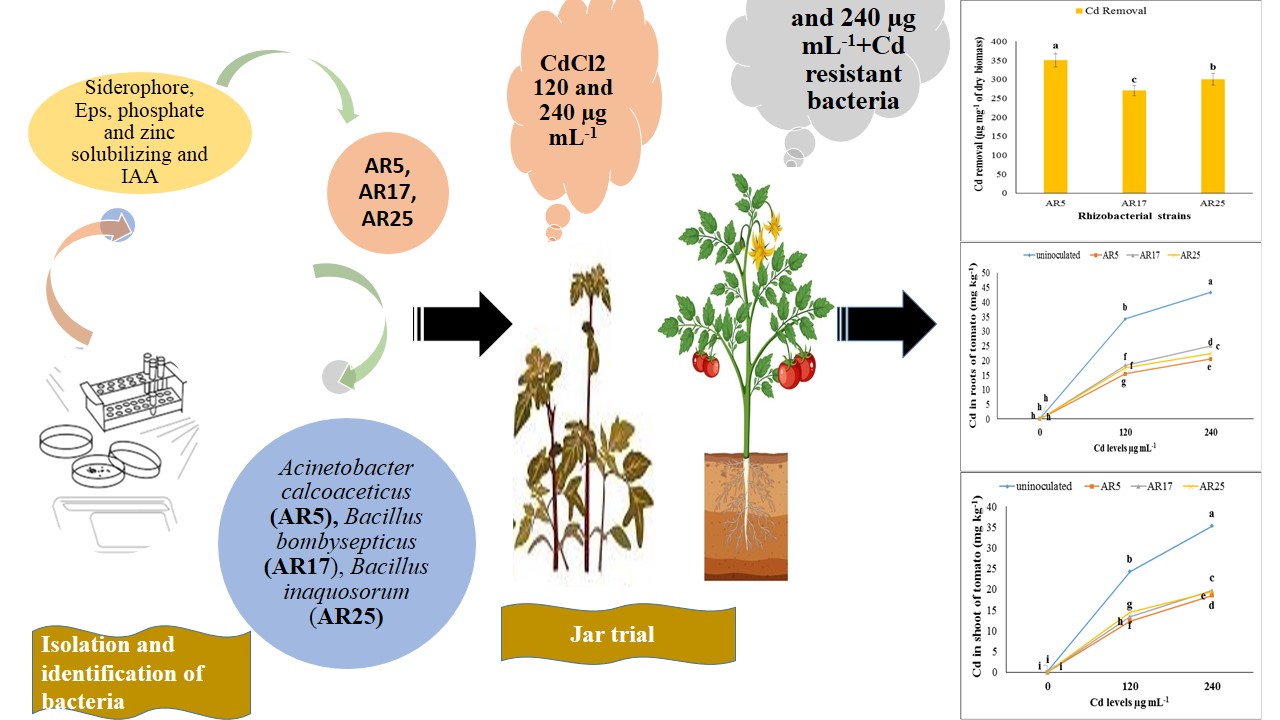
This study primarily focuses on the isolation and characterization of bacterial strains resistant to cadmium (Cd) and evaluates their role in promoting plant growth under varying Cd concentrations (0, 120, and 240 µg mL⁻¹). A total of 45 Cd-resistant bacterial strains were isolated from wastewater-irrigated fields, of which 16 isolates demonstrating consistent growth were selected for further analysis. Among them, three highly efficient strains i.e. AR5, AR17, and AR25 were identified based on their ability to produce siderophores and exopolysaccharides (EPS), along with additional plant growth-promoting (PGP) traits. These selected strains were tested in a jar trial, where their inoculation significantly enhanced shoot length (21%), root length (20%), shoot dry weight (30%), and root dry weight (33%) at 120 µg mL⁻¹ Cd compared to the uninoculated control. Additionally, bacterial inoculation reduced Cd accumulation in both shoots and roots of tomato plants. Based on 16S rRNA gene sequencing, the three strains were identified as Acinetobacter calcoaceticus (AR5), Bacillus bombysepticus (AR17), and Bacillus inaquosorum (AR25). The findings suggest that these Cd-resistant bacteria significantly improve tomato growth under Cd stress and have the potential to be further explored in controlled and field conditions for developing biofertilizers to enhance vegetable production in Cd-contaminated soils.
Total file downloads: 13